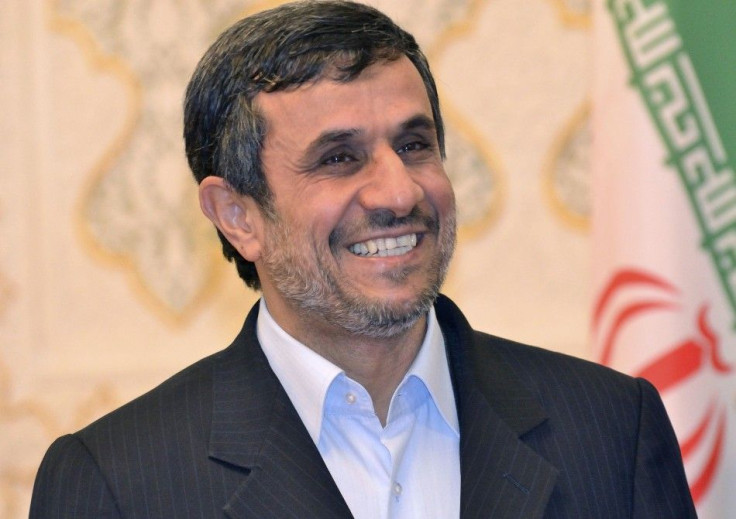Iran Unveils Missile, Defense Site In An 'Implied Threat’ To U.S., Israel; Appears Keen On Restoring Egypt Ties

Iran announced an ungraded version of a short-range ballistic missile system, the Fatah-110 or Conqueror at a ceremony Tuesday presided over by President Mahmoud Ahmadinejad. Separately, Tehran announced the plans to build an air defense site about 210 km (130 miles) from its uranium enrichment facility in Isfahan, officials said.
Unveiling the upgraded weapon, Ahmadinejad said Iran was seeking to develop its defense capabilities "not in an aggressive context, but as a deterrence," while the Israeli media said the announcement was an "implied threat to the U.S. military presence in the Gulf area."
Ahmadinejad said, "We do not seek progress in the defense industry for conquest. We want it to defend ourselves, our territory, our existence," BBC reported.
"Secondly, we want it for defending human dignity," he said.
The proposed 200-hectare air defense installation in the Abadeh area would be the largest in that part of the country and will be built by Khatam al-Anbia, the engineering arm of Iran's Islamic Revolutionary Guard Corps, and will eventually employ 6,000 people, Fars news agency reported.
"If (the enemy) ever has the intent of attacking this soil, we will make the Persian Gulf their grave," Abadeh's governor, Mohammad Javad Askari, was quoted saying at a ceremony marking the start of construction at the site.
Defense analysts said the announcements were meant to send across a message of deterrence to Israel and the U.S. in the wake of confrontational rhetoric between the U.S. and Iran over Tehran's clandestine nuclear weapons program.
"The fact that Iran indicated that it can hit both land targets and targets at sea (with the Fateh-110 missile) seems to hint at least that this kind of message is directed at the U.S.," Emily Landau, director of the Arms Control and Regional Security Project at Tel Aviv University's Institute for National Security Studies told Jerusalem Post.
Iran can close the Strait of Hormuz at least temporarily and may launch missiles against the U.S. forces and its allies in the region if it is attacked, U.S. Defense Intelligence Agency Director Lieutenant General Ronald Burgess said in February.
The Pentagon has recently bolstered the U.S. defenses in the Persian Gulf as a preemptive measure to counter any attempt by Iran to close the Strait of Hormuz.
The Department of Defense (DoD) in February notified the Congress of plans to expand surveillance and preposition a new mine-detection and clearing equipment in the area of the Strait of Hormuz.
In addition, the DoD officials wanted to modify the weapons systems on ships to be prepared against Iranian patrol boats and cruise missiles launched from its shore.
Meanwhile, Iranian Foreign Minister Al Akbar Salehi said in an interview published Tuesday that Iran hoped to restore relations with Egypt, which has been non-existent for the past 30 years, ever since Egyptian President Anwar Sadat signed the peace deal with Israel following the 1978 Camp David Accords. The ties were further strained in the 1980s when Egypt supported Iraq in its war against Iran.
In an interview with Egypt's Al-Ahram newspaper, Salehi said Iran "hopes relations (with Egypt) will return to their natural state and their true course," adding that the "restoration of relations depend(ed) only on protocol measures."
"Egypt is the cornerstone of the region and has a special stature in the Arab and Muslim countries... and we want relations of friendship and brotherhood with it," Salehi said.
AFP reported citing sources in Cairo that Egyptian President Mohamed Morsi will attend the Non-Aligned Movement (NAM) summit hosted by Tehran in August, accepting Ahmadinejad's invitation.
© Copyright IBTimes 2024. All rights reserved.





















